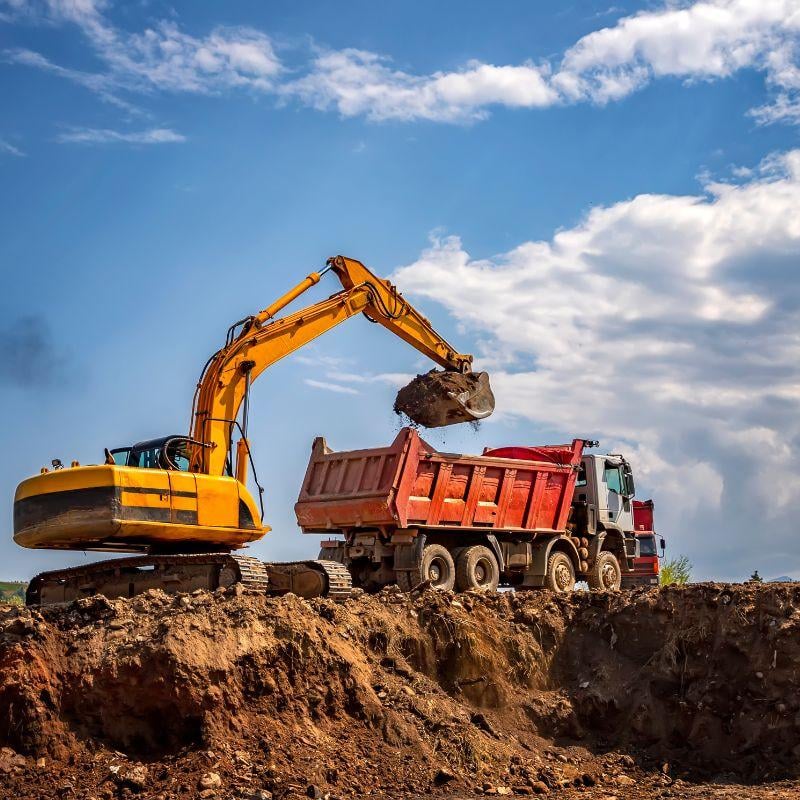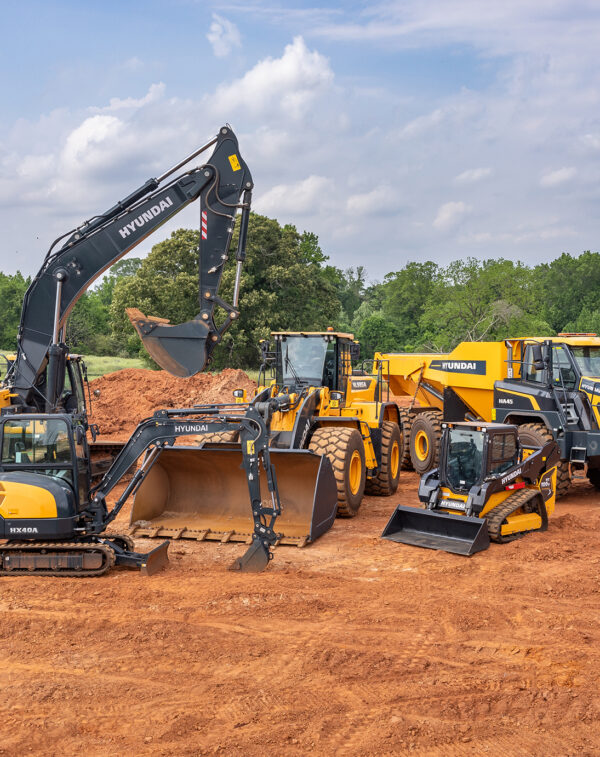Checking Out the Financial Benefits of Leasing Construction Tools Contrasted to Owning It Long-Term
The decision between having and renting out construction devices is critical for financial monitoring in the sector. Renting offers prompt price savings and functional flexibility, allowing companies to allocate resources more effectively. In comparison, possession comes with significant long-term monetary commitments, consisting of upkeep and depreciation. As contractors weigh these alternatives, the effect on capital, job timelines, and modern technology accessibility comes to be significantly substantial. Understanding these subtleties is crucial, especially when thinking about just how they line up with specific project demands and financial methods. What factors should be prioritized to make sure optimal decision-making in this complex landscape?

Price Comparison: Renting Out Vs. Owning
When examining the monetary effects of having versus leasing building devices, an extensive cost comparison is crucial for making informed decisions. The selection in between having and renting out can considerably influence a firm's profits, and recognizing the linked costs is critical.
Leasing building and construction equipment typically includes reduced upfront costs, enabling services to allot resources to other functional demands. Rental arrangements frequently consist of adaptable terms, enabling business to gain access to progressed equipment without long-term dedications. This flexibility can be especially advantageous for short-term jobs or fluctuating workloads. Nonetheless, rental expenses can build up in time, potentially surpassing the cost of ownership if tools is required for an extensive period.
Conversely, possessing construction equipment requires a considerable initial financial investment, along with continuous costs such as devaluation, insurance policy, and financing. While possession can cause long-lasting financial savings, it additionally binds capital and might not give the exact same degree of adaptability as renting. In addition, owning tools requires a commitment to its use, which might not constantly straighten with job demands.
Eventually, the decision to own or rent out needs to be based upon an extensive analysis of particular project needs, economic capacity, and long-term calculated goals.

Maintenance Duties and expenses
The option in between owning and renting construction equipment not only entails financial considerations yet likewise includes recurring maintenance expenses and duties. Owning devices needs a considerable commitment to its maintenance, which includes routine evaluations, repairs, and prospective upgrades. These obligations can quickly collect, bring about unforeseen costs that can strain a budget plan.
On the other hand, when renting devices, upkeep is commonly the obligation of the rental business. This setup enables professionals to stay clear of the economic concern related to wear and tear, in addition to the logistical challenges of scheduling repair services. Rental contracts often consist of stipulations for maintenance, implying that professionals can concentrate on completing jobs as opposed to stressing over devices problem.
Moreover, the varied series of devices offered for lease enables companies to select the most recent versions with innovative innovation, which can boost effectiveness and productivity - scissor lift rental in Tuscaloosa Al. By opting for leasings, businesses can avoid the long-lasting liability of devices devaluation and the associated maintenance frustrations. Inevitably, assessing upkeep expenses and duties is vital for making an informed choice about whether to possess or lease building tools, considerably impacting total job prices and functional performance

Depreciation Effect On Possession

A substantial variable to take into consideration in the choice to have construction tools is the influence of devaluation on overall possession expenses. Devaluation represents the decline in worth of the tools with time, affected by elements such as use, damage, and developments in technology. As equipment ages, its market price reduces, which can substantially impact the proprietor's economic position when it comes time to sell or trade the devices.
For building companies, this devaluation can convert to significant losses if the equipment is not made use of to its max potential or if it comes to be outdated. Proprietors need to here account for depreciation in their financial projections, which can cause greater overall costs contrasted to renting. Additionally, the tax effects of depreciation can be complex; while it might offer some tax benefits, these are usually offset by the reality of decreased resale worth.
Inevitably, the burden of depreciation emphasizes the relevance of recognizing the long-lasting financial commitment entailed in owning construction equipment. Companies need to carefully evaluate how commonly they will certainly use the devices and the possible economic effect of depreciation to make an enlightened choice regarding ownership versus renting out.
Economic Versatility of Leasing
Leasing building equipment uses substantial financial adaptability, enabling firms to designate resources much more successfully. This adaptability is especially vital in an industry characterized by changing job needs and varying work. By deciding to lease, businesses can stay clear of the significant capital investment required for buying tools, protecting capital for other functional requirements.
Furthermore, renting tools allows business to tailor their devices selections to specific task requirements without the long-lasting dedication associated with ownership. This suggests that businesses can quickly scale their devices inventory up or down based upon present and expected job needs. Consequently, this versatility reduces the threat of over-investment in machinery that may come to be underutilized or outdated gradually.
An additional economic advantage of leasing is the potential for tax obligation advantages. Rental payments are frequently considered operating expenses, permitting immediate tax obligation reductions, unlike depreciation on owned and operated equipment, which is spread out over numerous years. scissor lift rental in Tuscaloosa Al. This prompt cost recognition can additionally enhance a firm's money setting
Long-Term Project Factors To Consider
When reviewing the long-lasting requirements of a building and construction business, the decision between owning and renting out tools becomes more complex. Trick variables to consider include job period, regularity of usage, and the nature of upcoming jobs. For tasks with prolonged timelines, acquiring tools may seem advantageous because of the potential for reduced general costs. However, if the equipment will certainly not be made use of constantly across projects, useful content owning may bring about underutilization and unnecessary expense on maintenance, storage space, and insurance.
In addition, technological advancements posture a substantial consideration. The construction market is progressing quickly, with brand-new tools offering boosted efficiency and safety and security functions. Leasing permits business to access the most recent innovation without dedicating to the high upfront expenses connected with investing in. This adaptability is particularly advantageous for organizations that deal with varied projects calling for various kinds of devices.
In addition, economic stability plays a crucial duty. Having devices typically involves significant capital financial investment and devaluation concerns, while renting enables even more foreseeable budgeting and cash money circulation. Inevitably, the option in between having and leasing ought to be lined up with the calculated goals of the construction company, thinking about both present and awaited project demands.
Final Thought
Finally, renting out construction equipment uses significant financial advantages over lasting ownership. The lessened upfront prices, elimination of upkeep obligations, and evasion of devaluation add to boosted capital and monetary flexibility. scissor lift rental in Tuscaloosa Al. Additionally, rental settlements work as instant tax obligation reductions, additionally profiting professionals. Eventually, the choice to rent rather than very own aligns with the vibrant nature of building and construction projects, permitting flexibility and Discover More accessibility to the current equipment without the monetary worries associated with possession.
As devices ages, its market value decreases, which can dramatically influence the owner's financial position when it comes time to trade the tools or offer.
Renting out building devices offers considerable monetary flexibility, permitting business to allot sources a lot more efficiently.Additionally, leasing devices makes it possible for business to customize their devices options to particular job requirements without the lasting dedication connected with possession.In verdict, renting building and construction tools provides considerable financial benefits over long-term possession. Ultimately, the decision to rent out rather than own aligns with the vibrant nature of construction jobs, allowing for versatility and accessibility to the newest devices without the monetary concerns connected with possession.